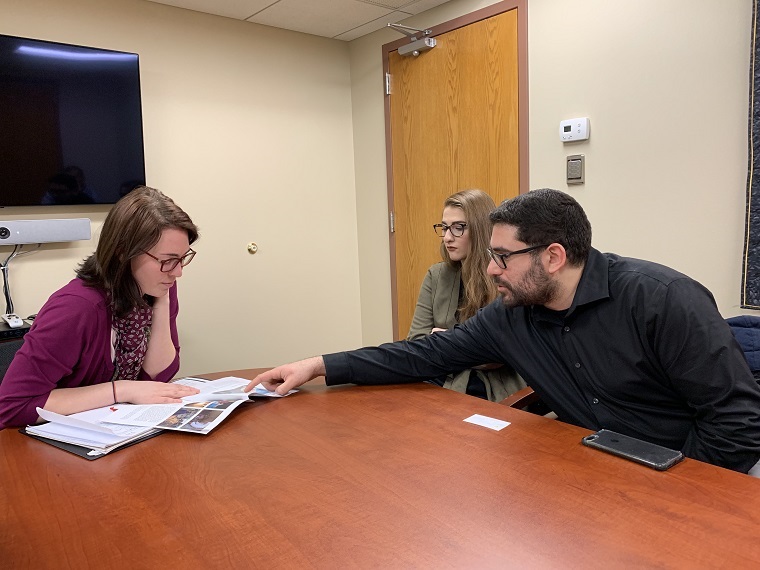
For the past four years, AFSC has partnered with Defense for Children International-Palestine on a campaign to challenge Israel’s prolonged military occupation of Palestinians by exposing the widespread and systematic ill treatment of Palestinian children arrested by Israeli forces.
Our No Way to Treat a Child campaign engages policymakers in Washington, D.C. by hosting congressional briefings, delivering petitions, and mobilizing people across the country in advocacy through public events, videos, and other resources.
And we're seeing the impact. On April 30, 2019, Rep. Betty McCollum introduced new legislation to hold Israel accountable for its continued abuse of Palestinian children in military detention. The Promoting Human Rights for Palestinian Children Living Under Israeli Military Occupation Act (H.R. 2407) would ensure that U.S. financial assistance to Israel is not used for the military detention, interrogation, abuse, or ill treatment of Palestinian children. H.R. 2407 builds from the similar bill introduced by Rep. McCollum in 2017, which was the first-ever bill to address Palestinian human rights in Congress and was signed by 31 representatives.
As of October, 22 representatives had signed as co-sponsors of H.R. 2407, including several new progressive members of Congress who have responded to grassroots pressure to support Palestinian rights. And we expect more congresspeople to add their support in the months ahead.
Help us keep up the momentum and build support for Palestinian children’s rights. Here are five ways you can engage your members of Congress:
1. Get to know your representative before you engage! Research their positions (were they a signer to HR 4391 or any Dear Colleague letters regarding Palestinian rights?), and find out who is the key staffer that addresses issues relevant to our campaign (in Washington, D.C. and in your district). Find out if they have been to Israel or Palestine and whether they went on AIPAC, JStreet, or other sponsored tours to the region. Look at their general voting record and committee assignments to see if they might be moved to support human rights and equality framing.
2. Check to see if your representative is speaking in your community while Congress is in recess. To find out, go online to your member’s website or call the local office. If there is an event planned (festival, parade, fundraiser, holiday party), find a few other activists to join you in attending the public meeting. Review the background information for HR 2407 (here's a fact sheet, more resources, and the full text of the bill). Either tell your representative “thanks for signing” or encourage them to co-sponsor.
Remember you are educating all the people in the audience when you ask your question! Or if your interaction is one-on-one, practice your “elevator speech” so you can quickly communicate about H.R. 2407 and the rights of children. Don’t forget to document/record your interaction!
3. Follow your member of Congress on social media (Facebook, Twitter, Instagram). Twitter is a good way of sending messages to your representative—and to find out about the issues they care about. Definitely post on social media about your experience at any public events you attend or opportunities you have to engage your elected officials–include photos where possible!
4. Be in touch with the staff member in your representative’s office that handles the member’s schedule and ask for a meeting with your representative. Put together a small group that can meet should an opening in the schedule become available (sometimes you are given less than 24 hours notice!). Small groups (five or less) that include people from different backgrounds or are associated in different ways to your representative, can be the most effective in a meeting.
Before your meeting, be sure you have prepared an agenda and are clear about your “ask.” If you have collected postcards, petitions, or other supporting documentation, bring them along to the meeting. If you get a meeting, be sure to document it with a photo and send a thank you note!
5. On Nov. 20, Universal Children’s Day, Christian leaders issued a statement in support of H.R. 2407. Many faith groups have spoken out on the need to protect Palestinian children who are arrested and detained by the Israeli army. View online resources about these faith-based efforts. Share these messages with your member of Congress and other faith leaders in your community to educate and engage their support for H.R. 2407.
Join us in action and together we can make a difference!

